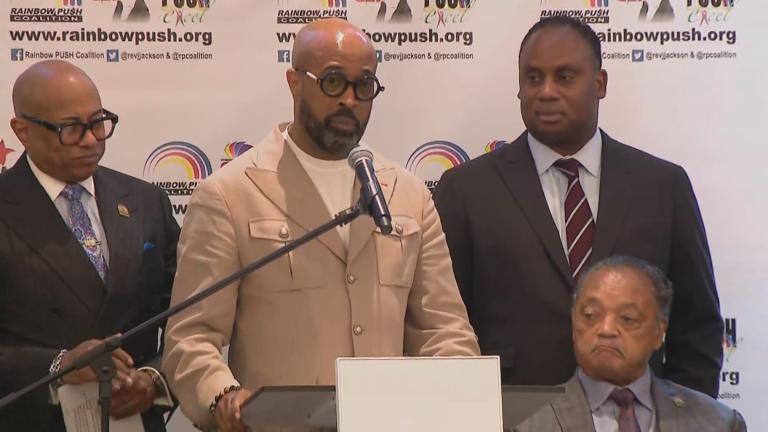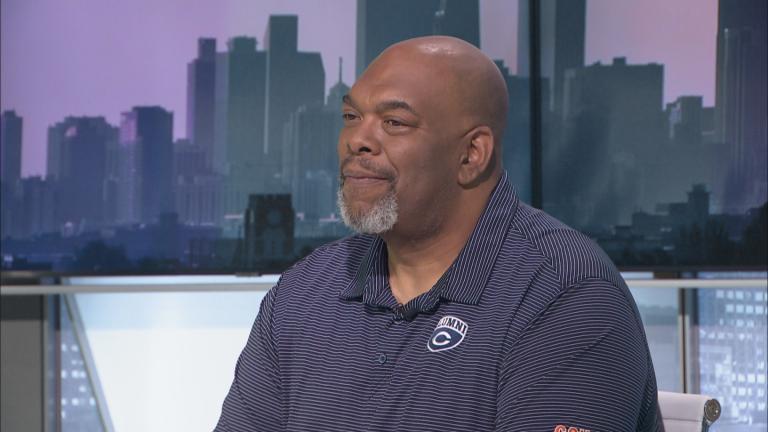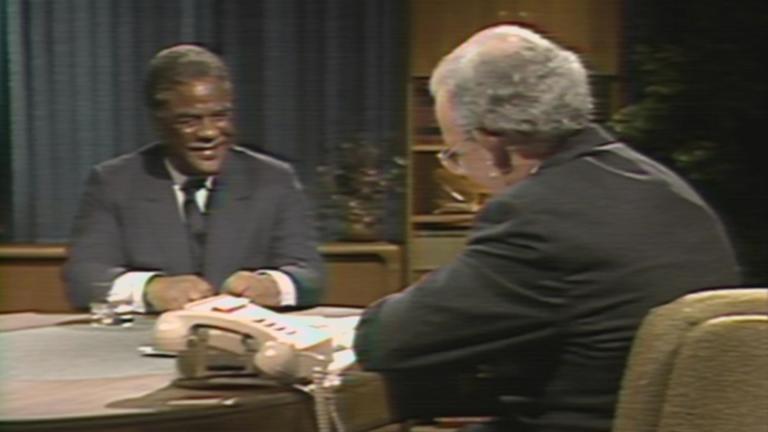As a program manager at Marillac St. Vincent Family Services in East Garfield Park, Laronda Castine plays a lot of roles. But she said her most important role is chief cheerleader.
“I think people would be surprised to know about the resiliency of the young moms,” Castine said. “How they do learn to be good mothers, learn to take very good care of their children, learn to help them with their school and their education.”
Castine is there to cheer on the moms and babies who participate in Project Hope, a program that supports young mothers through their pregnancies and beyond. The prenatal support comes from doulas like Lanise Washington, who said a big part of her job is helping young moms use their voices.
“Our participants are younger so therefore they are hesitant in speaking up for themselves or they don’t know what to say or they’re just scared, and so we encourage them to speak,” Washington said. “If it’s something that they need to say, let’s say it. If you want to hear the monitor up, you want to hear the baby’s heartbeat … you gotta tell them, tell them that’s what you want. If you need more of the epidural medicine, tell them what you want. Sometimes they can’t get it, but it’s just to let them know that their voice can be heard. And we teach them through prenatal class to do that.”
Washington said she was drawn to becoming a doula after having a bad experience during the birth of her own child.
“My son was born three months early, and I had a rough time at the hospital because the nurse at that time thought that I was 16 — and I wasn’t 16, I was 21, I just looked young,” Washington recalled. “She had slammed my legs on the table and said, young girls shouldn’t be having babies, and I had to explain to her, ‘Sweetheart. I have my bachelor’s degree in criminal justice, don’t play with me.’ … For me to get treated that way, … I didn’t want anyone else to feel that as well.”
As part of Project Hope, Washington has participants fill out a birthing plan pre-delivery. Post-delivery, she has them tell their birth story.
“They would have to tell the beginning to the end of labor and delivery,” Washington said. “And when they write it out and they think about what they wrote and they say, ‘Oh my God, I did all of this?’ Yes, you did!”
Washington is also part of a program that offers doula support for incarcerated teens and young women.
“With the Cook County Jail, it’s little different because they’re incarcerated,” Washington said. “So I would have to do groups inside of the jail and visit with the young lady in jail. One thing I made sure that I never asked them what they’re in jail for because that’s not my purpose there. My purpose is to make sure that they are OK and that their unborn baby is OK. So I teach them how to prepare for the birth. We can’t take them outside or anything, so we walk around their tier to get them some exercise. We do some exercises within the jail and at their beds.”
In addition to education about their pregnancies, Washington also helps prepare participants for the difficult process of letting go of their babies.
“They have one person to come in during labor and delivery as a family member,” Washington said. “Once the baby is delivered, the mom gets an hour or two with the baby and then the family member will be able to come back the next day and get the baby and take the baby home or the baby will be released to DCFS custody. It is hard, and we prepare for it. What we do is talk about it. That’s one of the first classes that we have with them to find out if they want to do guardianship or if they want their baby to be adopted or a family member gets the baby, and we give them all the paperwork to read up on it so they know what they will be doing … so they will understand what’s going on and what will happen with their baby.”
“I’ve never been in jail, and I’ve never been pregnant in jail,” Washington said. “I can understand you’re pregnant. That I understand. I’ve been pregnant, and I’m there to help them. I’m there for listening here if they need that because you have to get those emotions out, because whatever you’re feeling, the baby is feeling, and we want the baby to be happy. We want the baby to be ready to come into this world, even though the situation that they’re in is not one of the best.”
Back at Project Hope, once the babies arrive, the care continues through regular parenting classes, early intervention screenings and peer support groups.
“They learn things like how to interact with their child according to their age,” Castine said. “Proper nutrition is another thing we focus on — knowing how to properly feed their child, how to properly give them the nutrition they need, and in the area where we live, it’s a food desert, so that it makes it even more challenging. How to read to your child, how to choose appropriate books for your child. How to use age-appropriate discipline. We also work with the mothers to help them with coping skills. Things they need to survive in the community on their own and be able to support their families.”
Castine and Washington said over the years Project Hope has seen many big success stories. One major victory is in the health of the mothers and babies who take part in the program.
“We’re very fortunate that we haven’t lost any moms in childbirth in the 40 years that we’ve been a program, and we haven’t lost a child either in childbirth,” Castine said. “So that that says a lot.”
And, Castine said, she loves when program alumni come back to share their progress.
“We had a mom who was homeless, and she was able to get an apartment,” Castine said. “She was able to get her GED. She has two beautiful young girls, and …when she came and told us about her success, she was so excited.”
And those big successes are all in service of the little ones.
“It’s a new baby in this world. It’s a new mom that understands, ‘I have a child. I have to take care of my child and I have help. I’m not by myself, I have help,’” Washington said.
“It takes a community to raise a child,” Castine said. “When they can find a place where they’re comfortable and they’re safe, it means a world of difference.”








